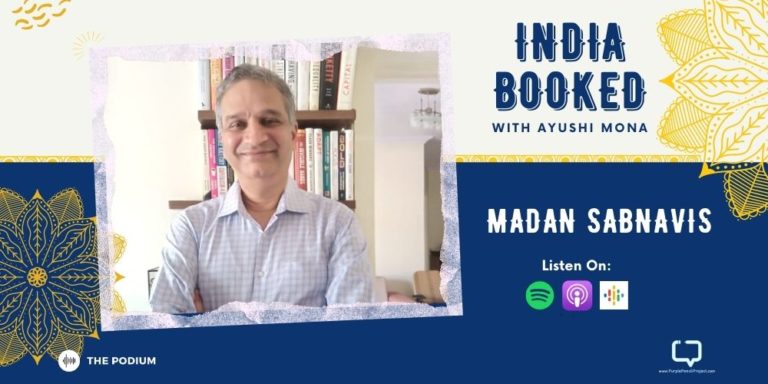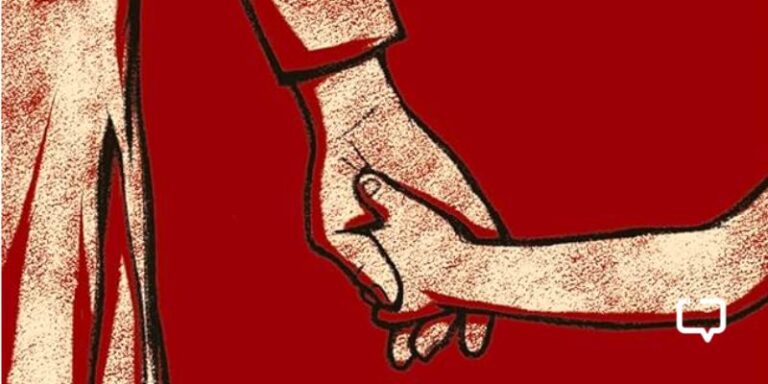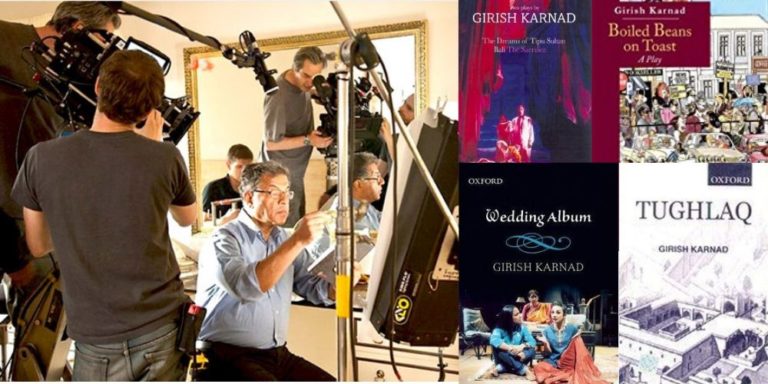Lindsay Pereira presents an intimate portrait of a community of Roman Catholics, their relationship with each other, and with God in his book Gods and Ends, shortlisted for the JCB Prize in Literature 2021
We encourage you to buy books from a local bookstore. If that is not possible, please use the links on the page and support us. Thank you.
Set in Orlem, Malad a northern suburb of Bombay in the 70s, Lindsay Pereira’s Gods and Ends is a series of multiple narratives, tragic and hopeless, that explore the grim lives of Goans living in the dilapidated Obrigado Mansion as they grapple with the loss of identity, faith, and a sense of belonging.
Meeting the characters of Gods and Ends
Each of the chapters in Gods and Ends focuses on a different character and traces their lives within itself as well in relation to their neighbours.
There is the alcoholic and pervert, Peter Vaz who lives in Room 105 which hasn’t been cleaned since his wife left him with taking their son, and a home where her husband spent his days with the bottle, magazines, and pornography.
Gilbert D’Souza of Room 104 cheats on his wife Angelina who prays to God to kill him. Gilbert interprets religion to his own advantage and justifies his affair.
Father Gonsalves, a young priest, remains a silent witness to the joys and tragedies of a life fulfilled by the presence of marriage and children. He would never know a life outside the church. And he doesn’t fully believe the words he speaks to comfort his flock at baptisms and funerals.
The humanity of each of these characters, flawed and despicable though they are, is revealed in their despair.
As we read, one family stands out. The Sequeira family is at the heart of Gods and Ends, and one that stays with you the most. Jude Sequeira, Philomena’s father and Brigette’s husband, is an alcoholic and a factory worker, and an abusive spouse and parent, living in a world that scares him endlessly. Philomena feels unsafe at her home. She eats to make herself bigger, and stronger. Her neighbour, Bella Quadro, is worried that she eats because she feels empty. Philomena is left alone in a toxic household and she fights that battle the only way she knows. On the other hand, Brigette prays for the death of her husband.
The building comes alive…
Chipping paint, communal toilets, small flat cramped with people, filth all over – the Obrigado Mansion is in itself a major character and an evil one in Gods and Ends. Cruellest of them all, it creates an atmosphere where there is not a sliver of hope for any of its tenants, who know no ownership and never tries to make it their home, but who also have no other place to go.
The gender roles we play
Pereira’s male characters see women as sex tools and domestic slaves to be abused and oppressed. Child abuse, domestic violence, verbal and emotional abuse, and alcoholism, are commonplace within the thin walls of Obrigado mansion as the residents look the other way. The women, victims of their circumstances, rely on a mix of regret and hope, faith and fable, to get by. Pereira does not fail to highlight the vicious cycle of abuse that women are stuck in, which they replicate with other women in their own lives.
These people lead lives full of resentment, jealousy, and anger. Behind the cruelty of each character lies the trappings of social and financial poverty, and the inability to heal and move on from past abuse. They have been plucked out of Goa – either through marriage or to escape social and economic marginalisation, and due to some ill fate, have ended up at Obrigado Mansion. They grapple with loneliness and a sense of loss of community. They have left behind friends and family in Goa. They have made mistakes that can’t be undone and now find themselves trapped in Orlem. Their decisions have led them here. And now there is no escape. They are stuck in a dilapidated suburb of the harsh city of Bombay, where money determines their fate. Whether or not you can afford pomfret at the bazaar decides if the housewives will talk to you.
“….How easy it is to foster a false sense of camaraderie among those who feel socially isolated…”
In the hands of God are our Ends
Religion is the common thread that connects the residents of the Obrigado mansion. They have built their lives around the Church. Some residents have surrendered and accepted their miserable circumstances as God’s plan for them, carrying the cross God gave them to bear. Others believe that God has abandoned them. Like any religious community, the residents use religion to justify their actions, no matter how immoral or illegal.
“Even in death, how much money you have matters. Angels for rich people. Cheap wood for everyone else. Only if you have money, angels will watch over your body. Otherwise there is no one to look even when you are dead .”
The front cover of the book shows an Angel on a grave. The author uncovers the hypocrisy of religion and scrutinises religious communities throughout the novel.
Conclusion
With writing that captures the mood of these dark and grim short stories, weaving a tragic narrative out of the social history of people who have been overlooked, Gods and Ends present a vivid picture of life in Bombay. Pereira’s characters live on the margins of society and act from a place of isolation, trauma, and despair. They hold on tight to their Roman Catholic community but God cannot save them. The reader turns every page hoping for God to turn up, hoping for a better end for the people of Obrigado Mansion.
Despite the dark narrative of Gods and Ends, it is difficult to stop reading. Pereira dismantles stereotypes around the Roman Catholic community, exploring the tragic past and present of malevolent characters without offering excuses for their actions. It offers an honest and accurate portrait of humanity and its decay. With writing that is very rich in nature, the book offers a fresh perspective on religion and morality.
Best Quotes from Gods and Ends
Didn’t history show time and again that anything in a man’s hand was only destined to be ruined? Women gave life, while men existed only to take it. The Bible had it all backwards.























4 Responses
Real presentation of poverty, poor and their sufferings. Book has been meticulously reviewed, as presented the critical details so nicely. Thanks
Thank you Dr. Mishra. Our reviewers are indeed keen readers.
Review of the work really connects the common experiences of a very common man who through out his/ her life tries to balance miseries of his / her life in the shadow of God. The fight in them comes to an end and they gave up to change. Accept the so called destiny.
Review of the book is wonderful. In a few words the writer explains the contents of the book vividly, even without reading the book a picture of the depictions inside it becomes lively before the eyes. I think it is worth reading.
Thank you Arvind – indeed, the book itself brings out the profound misery of the common man, and working the cards they have been delt. Thank you for your kind words, we try to make our reviews as balanced as possible.